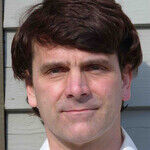The Food and Drug Administration has proposed creating a new category of over-the-counter hearing aids that could be purchased without a test, prescription or fitting. Approximately 37 million Americans suffer from some degree of hearing loss. It can cost as much as $5,000 to go through the testing and processes to acquire a pair of doctor-ordered hearing aids.
The FDA's thinking is that increased competition will lower costs and other barriers to acquiring basic hearing aids, which are not typically covered by Medicare or other insurers.
'Alzheimer's Brain' Without Dementia
In approximately one-third of cases, patients with high levels of amyloid plaque or tau neurofibrillary tangles, both clinical criteria for diagnosing Alzheimer's disease, have no outward symptoms of dementia.
New research suggests a possible answer: a family of proteins that act as a master regulator in the brain, preventing neurons from firing out of control. Scientists boosted the activity of these proteins in mice bred to have neurodegenerative disease and report being able to save the animals' cognitive function.
Body of Knowledge
While sleeping, you're still burning calories. The rate of burn depends on body weight, the amount of time you're asleep and your body temperature. On average, people burn about .42 calories an hour per pound of body weight while asleep. So for a rough hourly estimate, multiply your weight in pounds by .42.
Get Me That, Stat!
During the pandemic, there have been 343 more mass shootings in the U.S. than expected, according to new data published at JAMA Network Open. And all kinds of gun violence have climbed 30% compared with the year before the pandemic began.
Doc Talk
Fasciculation: a spontaneous, involuntary muscle twitch
Phobia of the Week
Deipnophobia: fear of dining with others (which may be particularly problematic this time of year)
Best Medicine
I don't always go to the gym, but when I do, I make sure Facebook knows about it.
Observation
"I've already had medical attention. A dog licked me while I was on the ground." — American playwright Neil Simon (1927-2018)
Medical History
This week in 1933, dried human blood serum was prepared for the first time in the U.S. at the University of Pennsylvania School of Medicine in Philadelphia. It was prepared by Drs. Earl W. Flosdorf, a refrigeration engineer, and Stuart Mudd, who had created a glass apparatus to freeze-dry serum — the clear fluid in blood that contains the proteins and antibodies formed by the body's immune system to protect against infection. The powdered, dried blood serum was used successfully for transfusions for the prevention of childhood diseases, and widely during World War II.
Ig Nobel Apprised
The Ig Nobel Prizes celebrate achievements that make people laugh, then think. A look at real science that's hard to take seriously, and even harder to ignore.
In 2000, the Ig Nobel Prize in psychology went to David Dunning of Cornell University and Justin Kruger of the University of Illinois for their published study: "Unskilled and Unaware of It: How Difficulties in Recognizing One's Own Incompetence Lead to Inflated Self-Assessments."
Known as the Dunning-Kruger Effect, this hypothetical cognitive bias posits that people with low ability at a task overestimate their own ability, while those with high ability underestimate that ability to do the task. Seems sort of relevant these days.
Med School
Q: Why do newborns' eyes change color?
A: In the first days and months after birth, a baby's eyes tend to appear blue or gray, but assume their permanent coloration gradually, beginning around the sixth month. (Timing is variable.) The reason is that newborn eyes lack melanin, a type of pigment that contributes to hair and skin color as well. As melanin production picks up, eye color changes. Blue eyes have less melanin than green or hazel eyes, which have less melanin than brown eyes. Exposure to light also affects the coloration process.
Curtain Calls
Dale Parlin, 67, was a retired salesman who filled his days working as a course marshal at the Lake Arlington Golf Course in Texas. On Feb. 18, 2005, a golf ball struck by his son on the 15th hole glanced off a tree and struck Parlin in the head. He died the next day of a cerebral hemorrhage, which may have resulted, in part, from blood-thinning medications he took for a heart condition. His son later said, "It was just the way God wanted him to go to heaven."
To find out more about Scott LaFee and read features by other Creators Syndicate writers and cartoonists, visit the Creators Syndicate website at www.creators.com.
Photo credit: Anemone123 at Pixabay






View Comments